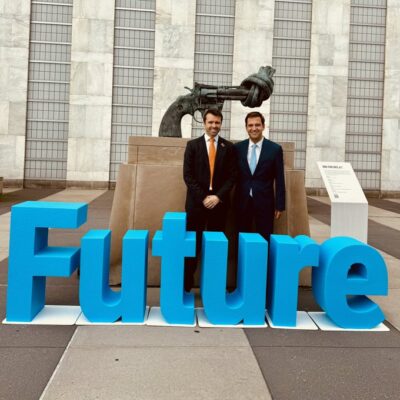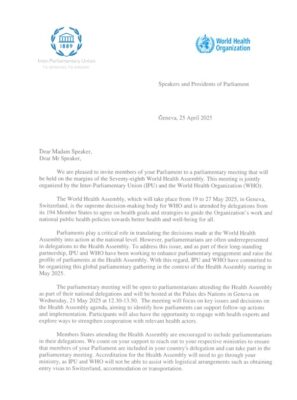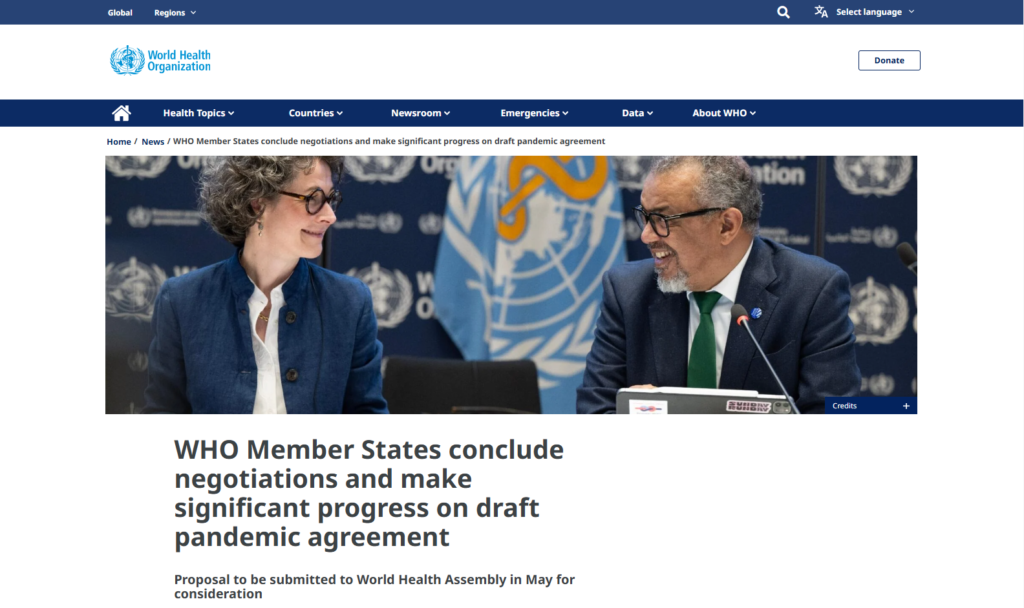


It is essential that Parliamentarians participate in the General Assembly of the UN and that they make the voices of their constituents heard directly in global for a such as this.
UNITE calls on all its members to attend!
Background Information
The General Assembly of the United Nations (UNGA) is the main policy-making organ of the Organization. Comprising all Member States, it provides a unique forum for multilateral discussion of the full spectrum of international issues covered by the Charter of the United Nations. Each of the 193 Member States of the United Nations has an equal vote.
The UNGA also makes key decisions for the UN, including appointing the Secretary-General on the recommendation of the Security Council, electing the non-permanent members of the Security Council and approving the UN budget.
The Assembly meets in regular sessions from September to December each year, and thereafter as required. It discusses specific issues through dedicated agenda items or sub-items, which lead to the adoption of resolutions. During the High-level week each September, the United Nations hosts world leaders, policymakers, experts and advocates for key Summits and high-level events, as mandated by UNGA resolutions, and the United Nations Secretary-General.
The Assembly meets in regular sessions from September to December each year, and thereafter as required. It discusses specific issues through dedicated agenda items or sub-items, which lead to the adoption of resolutions. During the High-level week each September, the United Nations hosts world leaders, policymakers, experts and advocates for key Summits and high-level events, as mandated by UNGA resolutions, and the United Nations Secretary-General.
UNITE would like to bring to your attention these key dates:
- Tuesday, September 9th, 2025: Opening of the General Assembly of the UN
- Tuesday, September 23th, 2025: High-Level General Debate
- Thursday, September 25th, 2025: Fourth High-Level Meeting of the General Assembly on the prevention and control of noncommunicable diseases and the promotion of mental health and well-being (HLM4)
A United Nations (UN) High-Level Meeting (HLM) is convened by the UN General Assembly (UNGA), the primary decision-making body representing all 193 UN Member States. In this forum, Member States collaborate on a broad range of international issues outlined in the UN Charter, including development, peace and security, and international law. The decision to convene a HLM on a specific topic is made under exceptional circumstances through a UN resolution, aiming to facilitate agreement on cooperation measures and solutions to significant global challenges among Heads of State and governments.
Since the inaugural Special Session on HIV/AIDS in 2001, the UN has convened various HLMs focused on health issues, including HIV/AIDS (2006, 2011, 2016, 2021), Non-Communicable Diseases (2011, 2014, 2018), Antimicrobial Resistance (2016), Tuberculosis (2018, 2023), Universal Health Coverage (2019, 2023), and Pandemic Prevention, Preparedness, and Response (2023).
This meeting comes at a pivotal moment. NCDs, such as heart disease, cancer, diabetes, and chronic respiratory illnesses, continue to account for over 74% of global deaths annually, disproportionately affecting low- and middle-income countries. At the same time, mental health conditions now affect nearly 1 in 8 people worldwide, with suicide remaining a leading cause of death among adolescents and young adults. Addressing them demands sustained political leadership, stronger multisectoral action, and renewed global solidarity. That is precisely what the HLM is designed to fullfill.
HLM4 presents a vital opportunity to review progress since the last high-level meeting, identify implementation gaps, and galvanize action toward achieving SDG target 3.4, which calls for a one-third reduction in premature mortality from NCDs and the promotion of mental health and well-being by 2030. It will be a key moment to promote high-impact, equity-focused policies and investments to protect future generations and deliver on the promise of universal health coverage for all.
Since 2011, three other High-level Meetings on the prevention and control of noncommunicable diseases (NCDs) have been convened. They have laid a strong political and policy foundation for global action, establishing a global framework for NCD prevention and control, but implementation remains uneven, underscoring the urgency of renewed action at the upcoming Fourth High-level Meeting.
The 2011 Political Declaration recognized NCDs as a major threat to development and committed Member States to strengthening national responses through multisectoral policies, health system improvements, and international cooperation (UN A/RES/66/2).
The 2014 Outcome Document reaffirmed these commitments and introduced four time-bound commitments: setting national NCD targets for 2025, developing national multisectoral action plans, reducing risk factors, and strengthening health systems to respond to NCDs (UN A/RES/68/300).
The 2018 Political Declaration expanded the NCD agenda by explicitly integrating mental health and well-being, calling for increased investment, greater accountability, and the engagement of non-health sectors to address the social and commercial determinants of health (UN A/RES/73/2).



















